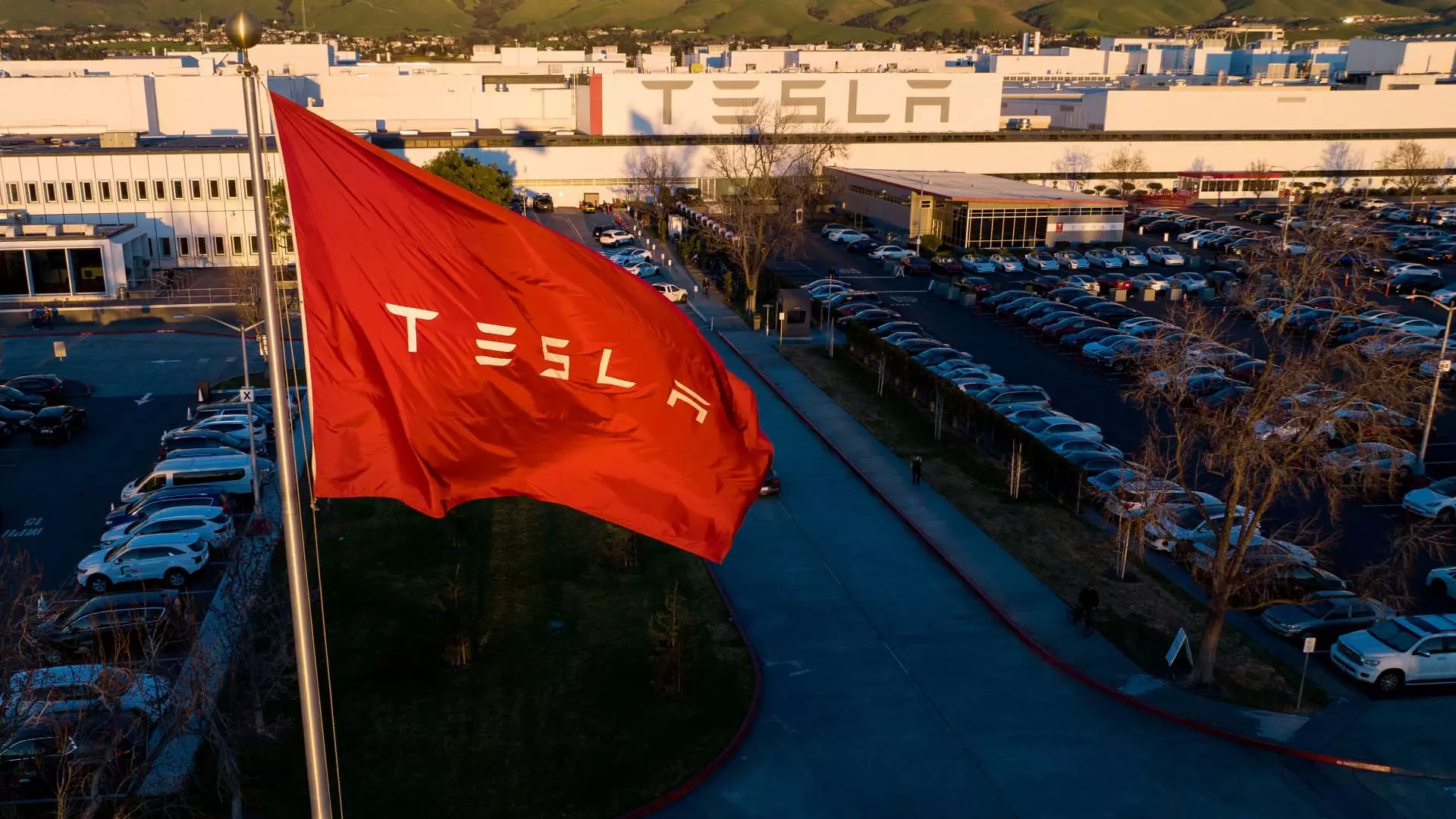Tesla, the electric vehicle (EV) manufacturer, is making adjustments to its workers’ pay across its factories in the United States. Notices posted at the company’s vehicle assembly plant in Fremont, California, indicate that pay increases will be implemented starting this month. These changes come after Tesla workers in Nevada were informed of their hourly rate increases in January. The move is seen as a response to the recent push for unionization and follows a trend observed among other major car companies.
Tesla’s factory workers in the U.S. are set to receive pay raises as part of a “market adjustment.” Though specific details are scarce, employees at the Fremont plant have confirmed that information regarding the 2024 pay rates has been distributed. The raises were introduced following the distribution of the pay rate information. Although the exact numbers have not been disclosed, it is noted that Tesla workers in Nevada experienced hourly rate hikes of around 10%, based on their positions. It is important to mention that these figures do not include potential bonuses that some employees may earn.
The United Auto Workers (UAW) has recently announced its intention to potentially organize Tesla’s workforce after its successes with the Detroit automakers. The UAW aims to gather support by circulating an authorization card online, collecting names and signatures of Tesla employees interested in forming a union. When the UAW solidifies about 70% support from workers, the union hopes to achieve recognition from Tesla or organize a vote. This push for unionization follows Tesla’s history of tension with unions, as evidenced by the company’s violations of federal labor laws and CEO Elon Musk’s vocal disapproval of unions.
Shawn Fain, a spokesperson for the UAW, has affirmed that Tesla’s decision to increase wages aligns with the actions of other car manufacturers such as Toyota, Hyundai, and Volkswagen. However, while these raises are considered a positive step, the UAW claims that they still fall short of what the companies can afford and what autoworkers are truly worth. The union’s statement implies that Tesla’s pay increases may be influenced by external pressures and market dynamics rather than a genuine commitment to fair wages.
Not only is Tesla facing potential unionization efforts in the U.S., but the company has also encountered similar challenges in Europe. Strikes and boycotts have occurred in response to Tesla’s handling of unions and collective agreements. Reports indicate that at least 15 unions joined IF Metall in strikes aiming to establish industry-standard wages and benefits in Sweden. Large pension funds in Scandinavia have also urged Tesla to reconsider its approach to working with unions and collective bargaining agreements.
The news of pay increases for Tesla’s factory workers in the U.S. had an immediate impact on the company’s stock price, with shares closing down by 2.9% following the announcement. Furthermore, Tesla’s production in Germany was temporarily suspended for two weeks due to supply chain disruptions related to recent attacks in the Red Sea. These challenges may affect the company’s overall performance and raise questions about its ability to meet demand and address labor concerns simultaneously.
Tesla’s decision to implement pay increases for its factory workers in the U.S. reflects a broader trend among the automotive industry. With the push for unionization gaining momentum and Tesla’s history of labor law violations, this move may be seen as a response to external pressures rather than a genuine commitment to fair wages. As Tesla navigates these challenges, it remains to be seen how the company will address the concerns of its workers while continuing to expand its global operations.

Leave a Reply